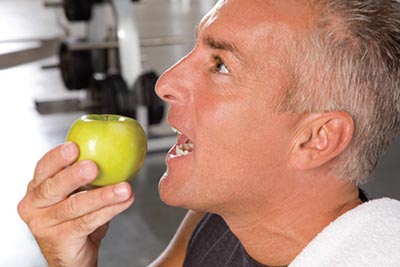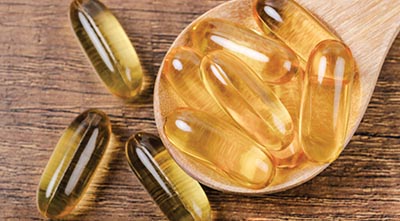Quick Studies: a snapshot of the latest research on diet, exercise, and more

Weight Loss & Breast Cancer Risk

Losing excess weight may cut the risk of postmenopausal breast cancer.
Researchers tracked roughly 125,000 women aged 50 or older who did not take postmenopausal hormones.
Compared to those whose weight was stable over 10 years, the risk of breast cancer was 18 percent lower in those who lost and kept off 4 to 9.9 pounds, 25 percent lower in those who lost and kept off 10 to 19.9 pounds, and 32 percent lower in those who lost and kept off at least 20 pounds.
Also encouraging: women who lost at least 20 pounds but regained some weight still had a lower risk than women whose weight was stable.
Although the scientists took many other factors into account, it’s possible that something else about the weight losers explains their lower risk.
What to do: Aim for a healthy weight.
J. Natl. Cancer Inst. 2019. doi:10.1093/jnci/djz226.
An Apple (or Two) a Day?

Could two apples a day trim cholesterol?
Scientists had 40 people with mildly elevated cholesterol consume two apples or an apple juice drink (with enough added sugar to match the natural sugar in the two apples) every day for eight weeks each. LDL (“bad”) cholesterol was 7 points lower on the apples, but no lower on the apple juice.
What to do: More studies are needed. In the meantime, enjoy apples.
Am. J. Clin. Nutr. 2019. doi:10.1093/ajcn/nqz282.
Vitamin D & Bone

Extra vitamin D won’t protect your bones.
The VITAL trial randomly assigned roughly 770 adults to take vitamin D (2,000 IU a day) or a placebo. (About 80 percent of them started with adequate vitamin D levels.) After two years, vitamin D takers had no higher bone density—and no less bone loss—in the spine, hip, or whole body than placebo takers.
Among people who entered the study with lower blood levels of free (unbound) vitamin D, vitamin D takers had a slight increase in spine bone, and less loss in hip bone, than placebo takers. (Most blood tests measure total, not free, vitamin D.) But those findings could be due to chance, so they need further study.
What to do: Aim for recommended intakes of vitamin D (600 IU a day up to age 70 and 800 IU a day over 70), and no more. Fortified foods typically have only 40 to 100 IU per serving, so most people need a daily multivitamin or vitamin D supplement to reach 600 or 800 IU.
J. Bone Miner. Res. 2020. doi:10.1002/jbmr.3958.
Can a Healthy Diet Slow Arthritis?

A healthy diet may slow the progression of knee arthritis.
Researchers followed 2,757 people with mild to moderate osteoarthritis in at least one knee. After an average of four years, those who reported eating a “prudent” dietary pattern—that is, a diet rich in fruits, vegetables, fish, whole grains, and beans—had a lower risk of worsening arthritis, as measured by X-rays and by reported pain, stiffness, and disability scores.
But although researchers took other factors into account, it’s still possible that something else explains why arthritis progressed less in healthy eaters.
What to do: Aim for a healthy diet. Even if it doesn’t slow your arthritis, it can lower your risk of heart disease, stroke, type 2 diabetes, and some cancers.
Am. J. Clin. Nutr. 2020. doi:10.1093/ajcn/nqz333.
Photos: stock.adobe.com: tmc_photos, iceteastock, gamjai, Monkey Business.

